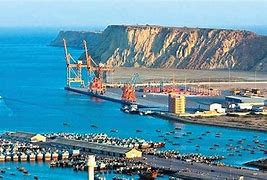Xi, a staunch advocate of BRICS collaboration, has previously likened the five founding members to the fingers of a hand, individually short and long when extended, but forming a powerful fist when united. With the group having expanded its membership last year, this metaphor now resonates even more strongly.
In an ara of global turbulence and change, the leader of the largest developing nation is prepared to steer BRICS, which represents the forefront of the Global South, toward a more significant role in creating a shared and prosperous future for all.
Gold Bricks
BRICS, which stands for Brazil, Russia, India, China, and South Africa, is referred to as “gold bricks” in Chinese, symbolizing optimism for its vast potential and bright future.
This optimistic perspective is central to Xi Jinping’s involvement with the group, which he has consistently prioritized in China’s foreign policy. His first appearance on the international stage as China’s leader was at the 2013 BRICS summit in Durban, South Africa, and he visited each of the other four BRICS nations within his first two years in office.
Due to the collaborative efforts of its members, BRICS has seen a steady increase in its global influence. According to World Bank data, the group’s share of global GDP rose from 18% in 2010 to around 26% in 2021, showing consistent growth over the years.
One of the key factors driving this growth is a focus on tangible outcomes. Xi has emphasized that “BRICS is not a talking shop, but a task force that gets things done.”
In line with this approach, practical cooperation has been the cornerstone of the BRICS framework, exemplified by the establishment of the New Development Bank (NDB). By the end of 2023, this Shanghai-based multilateral institution had approved approximately 105 projects across member countries, totaling around 35 billion U.S. dollars.
Recognizing the evolving needs of BRICS, Xi, at the 2017 summit in Xiamen, China, advocated for the inclusion of cultural and people-to-people exchanges to strengthen ties between member nations and enhance the foundation for cooperation.
Key Drivers of BRICS
BRICS is built on three key driving features: political and security, economic and financial, and cultural and people-to-people exchanges. This cooperation framework has made substantial strides and garnered increasing public support.
Xi has articulated that BRICS cooperation moves beyond traditional political and military alliances, breaking away from obsolete ideologies and the zero-sum mind set of “you-win-I-lose” or “winner-takes-all.”
Inclusivity under BRICS
Moreover, over the years, as the world undergoes profound transformations unprecedented in history, the Chinese president has consistently advocated for openness and collaboration. At the 14th BRICS summit in 2022, Xi emphasized, “In the current context, it is increasingly vital for BRICS nations to pursue development through open doors and foster cooperation with welcoming attitudes.”
A year later, over 60 countries convened in Johannesburg for the BRICS summit. Xi stated, “This gathering is not about urging countries to take sides or creating bloc confrontations; rather, it is an effort to broaden the framework for peace and development.”
In addition to the countries that became new full members on January 1, 2024, more than 30 nations have officially applied to join BRICS, with numerous other developing countries seeking deeper partnerships with the group.
“There is a reason why these nations wish to join BRICS,” explained Mekhri Aliev, a board director of the BRICS innovation base in Xiamen. “They recognize the potential and opportunities that lie within BRICS.”
Three months after deciding to expand its membership, BRICS held an extraordinary joint summit addressing the Gaza situation, which included leaders from invited member states and UN Secretary-General Antonio Guterres. This marked a unique meeting for the group. As Xi noted, it represents “a good start” for enhanced cooperation within BRICS following its expansion.
it should be noted that BRICS plays a significant role in influencing the international landscape. Promoting a more just and equitable global order has been a recurring theme in Xi’s comments regarding BRICS cooperation. The Summit in Kazan, Russia is awaited by many to witness the impactful outcomes it will make.
Related Posts

















